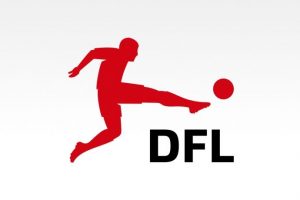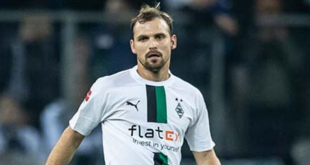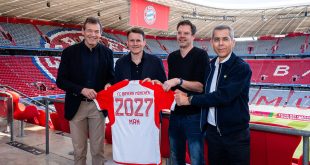 The DFL comments on the discussions concerning a strategic marketing partnership at league level and invites fans to continue dialogue.
The DFL comments on the discussions concerning a strategic marketing partnership at league level and invites fans to continue dialogue.
Part of what makes the fan culture in German football stadiums special is that fans can express their views on banners and in chants. It is with great respect and gratitude that the DFL Deutsche Fußball Liga supports the fan’s positive spirit and the way in which fans in all stadiums have taken a stand for important issues, such as against right-wing extremism and for our democratic coexistence in recent weeks.
The DFL of course also accepts that issues such as the decision of Bundesliga and Bundesliga 2 clubs to enter into a strategic marketing partnership is viewed with scepticism by the active fan scene and that this is articulated in the stands. What is not in the spirit of football and fair play, however, is when protests act to the detriment of the teams and sporting competition and matches cannot be properly carried out. This affects millions of fans.
The voice that fans and members have within their clubs is an essential part of German football. As a result, fans can expect the clubs at their locations and the DFL as their association to communicate relevant decisions and facilitate direct dialogue on critical issues. This has been, and continues to be the case with the decision to engage a strategic marketing partner. In this regard, a number of discussions and talks in various formats have been held with fans at club level. The DFL Executive Committee has invited representatives of the nationwide fan organisations and fan alliances for further talks this Thursday.
The right to have a say is accompanied by the responsibility that we all have to deal with critical issues. Not every discussion guarantees that everyone will share the same opinion by the end. Both the DFL and the clubs respect the fact that fan groups may reject the model that has been chosen. Good sportsmanship, however, means listening to the other person’s arguments.
The following explanations therefore set out to clarify the points of criticism that have repeatedly been voiced.
- Bundesliga and Bundesliga 2 rely on sustained positive development.
The DFL and the 36 clubs have the common goal of ensuring that the Bundesliga and Bundesliga 2 remain attractive and competitive leagues where the clubs are financially stable, and the conditions of the 50+1 rule and other positive features of German professional football are adhered to.Ensuring this requires (1.) healthy economic development, and (2.) good international regulation of team costs and investor funds. The DFL has been working hard to ensure both of these points for many years.
- The marketing partnership strengthens Bundesliga and Bundesliga 2 and benefits all clubs.
The strategic marketing partnership will enable necessary investment in long-term development, in order to strengthen the central marketing of both the Bundesliga and Bundesliga 2. There will be long-term investment in the media product, digitalisation and internationalisation. This contributes to the financial security of all clubs, which receive up to 50% of their funds from central marketing, and helps to strengthen the Ligaverband.We see trends in Europe that are moving in the opposite direction; towards weakened centralised marketing in some leagues and in the discussion of the Super League. As the DFL and Ligaverband, we are confronting this risk, in order to maintain strong cooperation and a model of solidarity.
Moreover, the capital generated through the planned marketing partnership will explicitly not be used to finance players and team costs. On the contrary, we are currently working on further national regulations to strengthen the financial stability of clubs. This point also distinguishes our aim of long-term development from the short-term focus of other associations and leagues.
- A marketing partner will have no influence on sporting competition, kick-off times or venues.
The strategic partner will not decide or be able to decide on kick-off times, venues, the composition of the leagues or other sporting issues at any time.The future partner’s role in jointly determining content is entirely regulated and extremely limited in the interests of the clubs and German football. Intervention in sporting matters is completely ruled out. Furthermore, the right to have a say on commercial matters is strictly limited. Representatives for the clubs also have clear majorities in all commercial decisions, hence only the clubs can make decisions on the direction of German football at given time.
- The DFL is not selling any shares.
The model envisaged for a strategic partnership is not a sale of shares in the DFL. Instead, the future partner will receive a percentage of future revenues over a limited period of 20 years. In return, the partner will contribute investment capital and value added to support development.This model is comparable to the existing marketing partnerships of many clubs, although at the DFL the capital will be used for long-term development.
- The DFL also sees improper commercialisation and team costs as a problem.
The DFL has been working very hard for several years to further develop the financial rules of the game throughout Europe. International financial regulations were strengthened in 2022 as a result of the DFL’s contribution. In December 2023, the DFL went one better and submitted concepts to UEFA in order to contribute to better football through an absolute cap on team costs, among other things.Healthy economic development and good regulation are important for our journey. It has to be possible to be successful with our German approach of two attractive leagues with sustainable clubs, the 50+1 rule, fair ticket prices and a close relationship with the fans.
In summary: German football thrives on clubs that are deeply rooted in their communities. It stands for a proactive and fair style both on and off the pitch and for millions of fans. That means the millions of people who flock to the stadiums and watch from the stands or from the boxes and the millions of people who tune in on their TVs and mobile devices.
We can therefore understand if fans are concerned about a complex and widely discussed topic such as a strategic marketing partnership. This makes the central message all the more important: Fans will not suffer any disadvantage as a result of this process. There is no “selling out”, no loss of control and no departure from the 50+1 rule – and therefore no reason to indulge in horror scenarios.
Quite the opposite. The ongoing development of centralised marketing will ensure that our Bundesliga and Bundesliga 2 will remain in place moving ahead, as will the basic values of the leagues and their tried and trusted structures.
A detailed FAQ that contains all the background information on the topic can be found at DFL.de/en .
 Arunava about Football A look at football & the world through my eyes!
Arunava about Football A look at football & the world through my eyes!



